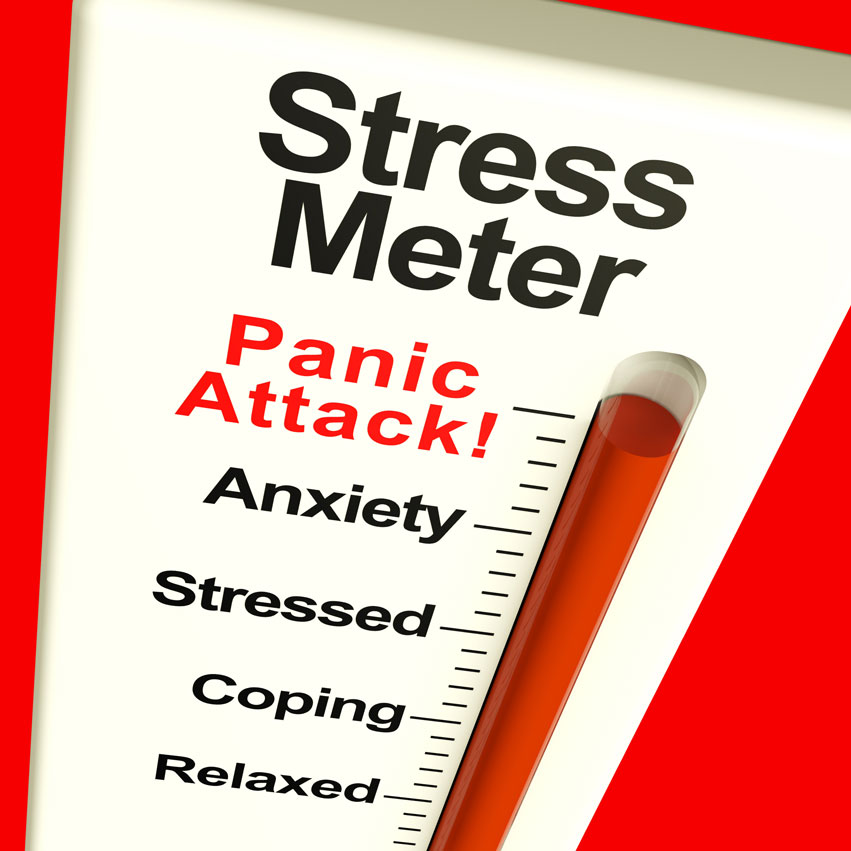One of the things that robs us from healthy influence is worry, fear and anxiety. In fact, these often don’t decrease our influence but actually cause us to seek to influence others in unhealthy ways in order to bring quick alleviation to our anxiety.
Anxiety causes us to take the short-term look rather than seeking the best long-term solution. Our primary concern becomes, "Get this feeling of pressure off of me." We then tend to push for whatever we think will make us feel better the fastest, rather than asking, "What is the best long-term solution for this problem?"
We all worry. We all have fears. We all have anxiety. It is simply part of being human. But how we handle our anxiety is what sets apart leaders from those who capitulate to the stress.
Anxiety is a Condition, Not a Flaw
Our brains are all wired differently. Some people respond to stress with a fight orientation, while others respond with a flight orientation. These are fairly hard wired into our human psyche.
When you feel anxiety and see it affecting your leadership and influence, don’t beat yourself up. That only makes things worse. Realize that like the common cold, it shall pass.
Also remind yourself that worry does little to actually change any situation. Worry tends to be a projection of "what if" worse case scenarios we create internally that rarely come to pass as horribly as we think they will. I cannot tell you how many end-of-the-world moments with clients I have had. When I check back in with them, even if their scenario came to pass, its personal effects were rarely as bad as they anticipated.
Gather Your Concerns, Note Which You Can Influence
Steven Covey recommends a strategy called the circle of concern. Everything inside the circle is of concern to you and everything outside of it is not of concern.
But not everything that concerns you is able to be influenced by you. For example, if a loved one gets ill, you can be highly concerned, but unless you are their physician, you have little influence.
List out all of your concerns and rate each concern with the degree in which you can influence the situation on a scale of 1-5.
1: I have no control over the outcome of this situation (a friend with cancer).
3: I have moderate influence over this situation (whether a prospective client will select your business).
5: I have a large amount of control over this situation (the amount of debt I am incurring).
Spend your time and energy working on changing the situations in which you have the highest influence. Release the others.
Deal With Inputs, Not Outcomes
Outcomes are rarely controllable. You can’t control whether you lose a tennis match. Perhaps you are matched against Jimmy Connors or Rafael Nadal, and you’ve only been playing 4 years. What you can do is control your inputs. Hit your serve into play, and don’t charge the net wildly. You can control not beating yourself.
I have a friend who is an ultra cyclist. He rides with a power meter which, in simple layman’s terms, measures how hard he is pushing against the pedals. He says the power meter keeps him honest, unlike measuring miles per hour. In a tailwind, generating 200 watts (an input) might result in a speed (an outcome) of almost flying 30 mph, but into a 20 mph headwind, it might only propel him at a pedestrian-like 15 mph. In races he focuses on his input. He knows exactly how much wattage he can input into the pedals per hour and finish. He lets the speed and outcome be what it may. He trains only to increase his input power.
We need to approach many of our personal, business and organizational challenges like this. Instead of focusing on uncontrollable outcomes, such as a client selecting to work with us, we should focus on a controllable aspect, such as making our sales presentation to clients as clear and benefit-oriented as possible. If you can answer "yes" to the second question, you have completed what you can control. Let the outcome be what the outcome is.
Take a look at the stressors you listed above. What is the one action step you can take to influence the situation at hand? Try to put your focus on that action.
Rank Your Personal Anxiety
I have a friend, "Phil," who periodically suffers from chronic anxiety. Phil, his wife, and administrative assistant (his support team) have a rating series. Phil ranks his anxiety on a scale of 1-10.
1 is smooth sailing.
3 is normal everyday stress.
5 is starting to get into the unhealthy zone.
7 is “dry heaving” stress where he has trouble functioning.
8 is I’m going home for the day.
10 is I need to get professional help stat.
By knowing Phil’s number, his support team can help him by offloading things as his number rises. This system and the steps he has taken have allowed him to continue flourishing as a leader. Phil has also broken the stigma of seeing a psychiatrist about his anxiety.
If you manage a team, this is also a good practice. Ask your team members how stressed they are on a scale of 1-10. If you consistently get high numbers, review this article with them, asking them to complete some of the tips. Encourage them even if you are stressed yourself. Encouraging someone has the affect of preaching truth to ourselves while we encourage them.
Keep Influencing
By giving yourself time to reflect on the situation and getting yourself beyond the immediacy of the emotional pull of stress, you will be able to keep influencing towards the best, rational and positive long-term solutions.
P.S.
Since the Keller Influence Indicator® offers a dynamic measure of influence, consider retaking it when facing heavier seasons of stress to see how your influence indicator scores change on the Seven Influence Traits® when in anxious situations.
Knowing how your influence abilities change during stress is key to staying more even keel as you’ll know your tendencies in advance.





